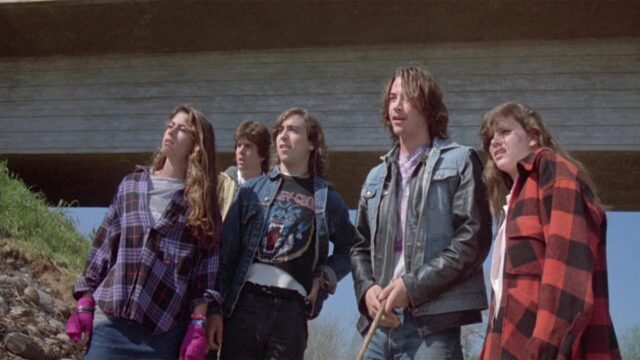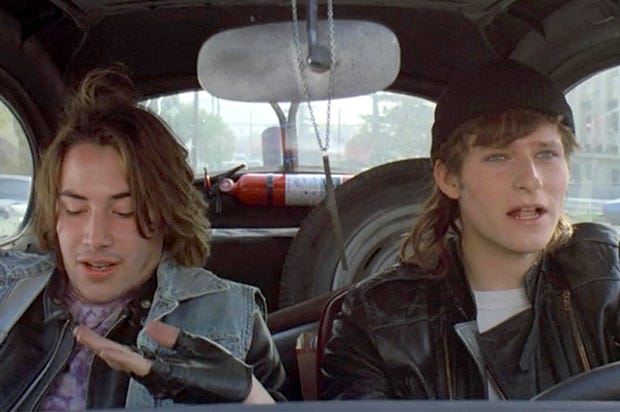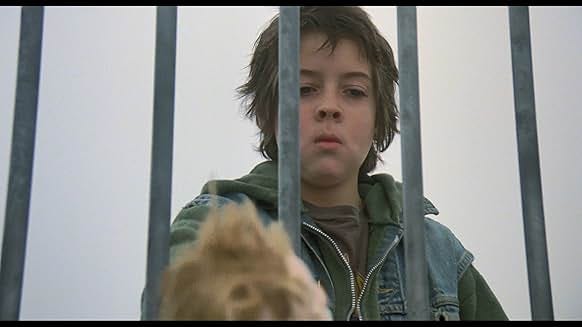The First Ever Generation X Film

River’s Edge, a movie that today has been largely forgotten, created a sensation when it came out in 1987. The sensation it created is now likewise forgotten, as is the cultural debate which had been raging at the time of its release.
During the “Reagan eighties,” many baby boomer spokesmen, at or near their forties, had grown quite fed up with what they viewed as the intolerable apathy of the rising generation, the cohort which would soon be called “Generation X,” but which at the time had no real title.
“Kids today,” the liberal boomer scolds of the 80s pontificated, “just don’t care enough about what was going on in the world. Why aren’t more young people sufficiently outraged by the Iran-Hostage scandal? Why has their collective consciousness not been raised about Daniel Ortega’s noble and embattled Sandinista regime in Nicaragua? Why are they not protesting the continuous proliferation of nuclear weapons by the military-industrial establishment, when there are already enough nukes in existence to reduce the world to a radioactive wasteland several times over?
The same boomer blowhards who voiced these complaints were never shy about talking up their ostensible accomplishments during the glory days of their flaming youth: they were anxious to let you know that they marched against the war in Vietnam; they took part in sit-ins and stand-ins and lie-ins in support of civil rights; they gathered in the sacred mud of Woodstock and celebrated love and peace in a beautiful, psychedelic orgy of wondrous togetherness, and so forth. So why couldn’t we “kids today” be more like they had been when they were our age?
Then there were the baby boomers who voted for Reagan and bought into the emergent “greed is good” yuppie ethos of the 80s. This species of boomer tended to castigate the rising generation not so much for their perceived insufficient social conscience as for their ostensible absence of ambition. While there were some eager-beaver “Alex Keaton” types amongst our cohort when we were young (I recall a couple of guys who, like Alex, always wore suits and ties to high school), such was certainly not the norm.
The term “slacker” soon became an insult of choice for those unhappy with the rising generation soon to be called “X.” Xers, like Back to the Future’s Marty McFly, an aspiring musician with crippling insecurity (an affliction which he shares with his father, George, an aspiring writer in his youth), were judged and found wanting for daring to be dubious of seeing the virtue of a life dedicated to relentless, backbreaking work.
Rivers Edge is notable for being the first major movie which attempted to provide a portrait of Generation X, a term first popularized in a 1987 article by author Douglas Coupland. The film features a group of stoner burnouts in a small Oregon town, who one day discover that a boy in their friend group, hulking, sullen dolt Samson Tollett (Daniel Roebuck), has choked his girlfriend Jamie (Danyi Deats) to death at a spot in the woods near the river, where the group often hung out to smoke pot.
The other kids’ reaction to their friend’s death at the hand of their other friend is curiously, and disturbingly, muted. They all knew and liked Jamie while she was alive, but they find themselves numb to the grief that they are “supposed” to feel over her murder, and equally insensible to the anger they ought to have for her killer.
One member of the group, a skinny, spastic speed freak named Layne (Crispin Glover, fresh off his portrayal of George McFly in the aforementioned Back to the Future) decides that the group’s mission should now be to protect Sampson from prosecution. As perverse as Layne’s instincts are, he at least seems to have some emotional engagement, even if it is fatefully misplaced.

While he shares the rest of the cohort’s absence of affect, the somewhat dense but likable Matt (Keanu Reeves) alone is aware that the murder was wrong, and that something ought to be done to rectify the injustice. But when he finally opts to take action, the cops are at first dubious, if not downright hostile to his claims.
The exploration of the kids’ numbness to emotion is compelling, calling to mind the thematic turf previously plowed by Bret Easton Ellis in his debut 1983 novel Less Than Zero (whose screen adaptation was an unforgivably mawkish travesty, having nothing in common with the ostensible subject matter). The questions raised are intriguing and disturbing: What has made these kids this way? The fact that all, or most of them come from broken homes, due to the scourge of divorce, and the trauma inherent in such unstable arrangements? The fact that they binge on drugs, are habitually truant from school, and no one in their lives really seems to care?
Societal breakdown starts with familial breakdown, which is on display to full effect in River’s Edge. Sampson’s utter lack of affect about his act of murderous violence is chilling (when asked in one scene if he loved Jamie, she shrugs and mutters, “She was okay…”), the film’s most memorable villain might be Tim (Joshua Miller), Matt’s dead-eyed 11-year old brother who wears a dangling, heavy metal-style earring, chugs beer, and enjoys taunting his younger sister by cutting the head off of her dolls. Tim also totes a gun, and appears to have murder on his own mind. (It should go without saying that familial environments of chaos. abuse, and neglect are breeding grounds for pathology in children.)

Unfortunately, River’s Edge can’t help but engage in a bit of cheap, boomer-style moralizing, in the form of “cool” teacher Mr. Burkewaite (Jim Metzler). In an early scene, Burkewaite mourns that “All the hippies are executives now, and everybody sold out,” but still boasts, with grating self-importance, about all of the good that was accomplished by his generation:
“Fundamental changes were made. Changes so basic that we now take them for granted… the civil-rights movement, later the women’s movement… In Vietnam, we stopped a war, man! We took to the streets and we made a difference! We turned public sentiment around and we made people see the truth!”
Lest we be tempted to think that Burkwaite’s sanctimonious rant is intended to be ironic, the movie brings him back in a later scene, in which he castigates both his students, himself, and society in general, for not truly caring about Jamie’s murder.
“Nobody gives a damn that she (Jamie) is dead! It gives us a chance to feel superior, and to point up a fundamental moral breakdown in society, but it doesn’t really affect us, does it? Because if it did, none of us would be in this classroom right now. We’d be out on the street, half-crazy from lack of sleep, hunting down Samson Tollett with a gun!”
At this moment, it is clear that Burkwaite the boomer is meant to be the voice of conscience in the movie, drawing attention to the appalling erosion of empathy and outrage concerning what ought to have been an action-catalyzing event. But his words are in vain; after he is finished talking, most of the class just looks back at him uncomprehendingly. Then one student asks, “Will we be tested on this?”
Gen X irony proves itself to be stubbornly insistent, even, or perhaps especially, in the face of actual tragedy.
https://andynowicki.substack.com/p/the-first-ever-generation-x-film
